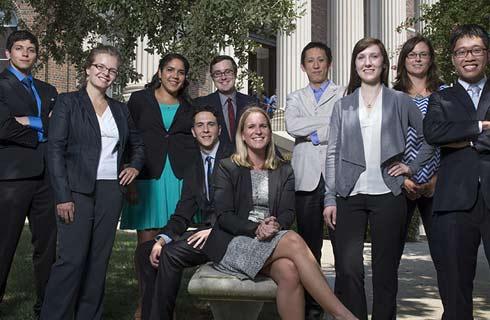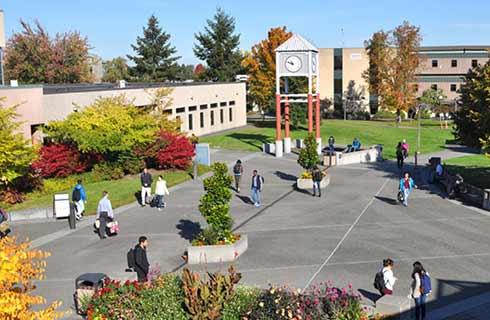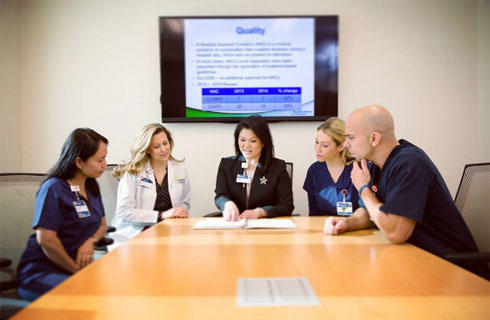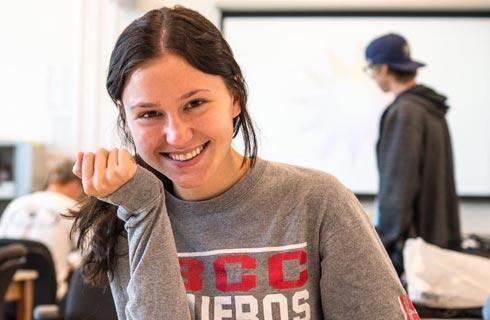- IDP China>
- 课程库>
- 工程与技术>
- 工程>
- 采矿与矿物工程>
- Doctor of Philosophy in Energy and Mineral Engineering- Mining and Mineral Process Engineering
能源与矿物工程哲学博士-采矿与矿物工艺工程
Doctor of Philosophy in Energy and Mineral Engineering- Mining and Mineral Process Engineering

学历文凭
Ph.D.

专业院系
John and Willie Leone Family Department of Energy and Mineral Engineering

开学时间

课程时长

课程学费

国际学生入学条件
We encourage applicants to provide any Graduate Record Examination (GRE) scores from the last 5 years, if available. Although not required, submitting GRE scores is highly recommended if you want to be considered for funding assistance by all faculty.
All international applicants whose first language is not English or who have not received baccalaureate or master's degrees from an approved institution in which the language of instruction is English must take the TOEFL (Test of English as a Foreign Language) or the IELTS (International English Language Testing Systems) examination (these scores are required before review of an application can proceed). A TOEFL score of 550 on the paper test, a score of 213 on the computer-based test, or a total score of 80 on the Internet test is required for admission. On the Internet version, a minimum score of 19 is required on the speaking portion. The minimum acceptable composite score for the IELTS is 6.5.
Evaluation Criteria:
Applications are evaluated on the quality of evidence presented that speaks to an applicant's ability to succeed in graduate coursework and in the research environment. Other aspects of the review include evidence for persevering through challenges and working well in team environments.
Statement of Purpose:
The statement of purpose should be a 23-page single-spaced document with 1-inch margins and 11- or 12-point font. The objective of this document is to explain why you want to pursue a graduate degree in Energy and Mineral Engineering and why you believe you will be successful.
Applicants should consider answering the following questions in the statement of purpose.
How has your work, research, educational or other life experiences have prepared you for graduate study in this program? What qualities in yourself do you feel are most responsible for your past academic success and your current preparation for graduate school?
What specific research is of interest to you and how would our program enable you to pursue your goals?
What are your goals after you complete your degree, and how will our graduate program help you achieve your immediate and longer-term career objectives?
What mentoring or teaching experiences have you had? What groups or teams have you been engaged in and had a change to lead (extracurricular, occupational, research, etc.)? What were those leadership experiences, and how have those experiences impacted your professional development and career plans?
Resume or CV (Curriculum Vitae):
This single document should outline the applicant's professional and educational experience. This document should generally be no more than 2-3 pages long. Longer CVs should only be provided when the applicant has extensive research and publication experience.
Applicants should ensure that experience relevant to academic success, technical expertise, research efforts and achievements, along with mentorship, teaching, or leadership success are described in this document.
Letters of Recommendation:
All applicants must provide three (3) letters of recommendation. These letters should be submitted by the application deadline. Failure to receive the letters in time may delay the consideration of your application.
Letters must be uploaded by each of your referees via the GRADS electronic portal. Reference letters can come from a mix of letters from individuals in academia and/or industry who can elaborate on your potential to be successful in the EME academic and research environment.
Academic Transcripts:
Applicants are required to electronically upload copies of transcripts (or equivalent documents for institutions outside the U.S., e.g., degree/study certificates, diplomas, etc.) from all post-secondary institutions attended, in the language of instruction (and copies of an official English translation if English is not the language of instruction).
IDP—雅思考试联合主办方

雅思考试总分
6.5
- 雅思总分:6.5
- 托福网考总分:80
- 托福笔试总分:550
- 其他语言考试:NA
CRICOS代码:
申请截止日期: 请与IDP联系 以获取详细信息。
课程简介
The Mining and Mineral Process Engineering option focuses on the aspects of geological, civil, mechanical, electrical, and industrial engineering, together with business and management skills, that are integrated in the challenge of extracting minerals from the Earth. Mining engineers are involved in all stages of the process: from exploring for new mineral deposits and deciding if they can be mined economically, through designing and constructing mines at and below the ground, to managing and operating mines, to preparing raw mineral products for manufacturing or energy industries.<br>In order to prepare students for this profession, course work and research opportunities specific to mining engineering include: computer applications, environmental control, geomechanics and rock mechanics, health and safety, innovative mining systems, materials handling, mine equipment maintenance, mine management, mine planning and reclamation, monitoring and control, operations research, surface mining, underground mining, and ventilation. Interests cover coal, metal, and nonmetal mining.<br><br>Mineral Process Engineering is concerned with the extraction and purification of valuable commodities from the earth. The raw materials produced by mining are highly impure and must be upgraded before they are of use to society. The refining of mineral commodities involves a broad variety of problems, mostly associated with the production, handling and separation of solid particles. Particle systems are also critical to many of the processes and products of modern industry: materials, chemicals and electronics as well as minerals. Mineral processing engineers are at the forefront of the development of the science and technology of particle systems and many of the techniques and procedures used in mineral processing find direct application in other areas.
相关申请
 预科
预科 奖学金
奖学金 实习机会
实习机会 在校学习
在校学习 跨境学习
跨境学习 校园授课-线上开始
校园授课-线上开始 在线/远程学习
在线/远程学习
开学时间&学费
学费信息仅供参考,请与IDP联系以获取详细信息
| 开学时间 | 时长 | 学费 | 地点 |
|---|
学校排名

世界排名78
数据源:
泰晤士高等教育世界大学排名
关于宾州州立大学帕克分校

每122位本科毕业的美国人中就有1个是PSU的校友1855年建校的宾州州立大学目前已经有了24个校区,University Park是其中的旗舰校区,也是规模最大的校区,容纳学生45000余人。距离宾州州府Harrisburg仅仅17英里的地理位置优势让University Park成为最受欢迎的PSU校区,同时也成为了录取率最低的校区。Party School的称号在PSU身上由来已久,但同时,每年专程跑到PSU校内面试应届毕业生的公司和政府部门超过1000个,这里的学术水准绝对不是盖的。美国每50个工程师中,就有1人是PSU的毕业生PSU的理工课尤其是工程学专业非常知名。实际上从1988年开始,PSU从工业界拿到的学术研究资金总额一直排名美国所有大学的前两位,仅次于麻省理工。很多工业界企业干脆直接将产品研发放在PSU进行。另外,地球与矿产科学学院在美国同类学院中排名第6,其中的地理专业全美第一,地质专业全美第三,均属世界一流学科项目。理论性大众传媒专业同样排名全美第一,与哥伦比亚大学的应用型大众传媒并驾齐驱。 Penn State-University Park的申请竞争相当激烈。申请材料中主观性的PS与简历部分属于非要求项。实际上,每年,单纯从成绩角度做出的录取决定占总录取人数的2/3。所以,想去PSU,得先保证有一个靠谱的标准化成绩。
本校相关课程
其他相关课程

采矿工程技术高级文凭
 凯布莱恩学院
凯布莱恩学院学历文凭
Bachelor Degree
开学日期
课程费用总额


采矿工程技术员文凭
 凯布莱恩学院
凯布莱恩学院学历文凭
Bachelor Degree
开学日期
课程费用总额


采矿工程研究生文凭
 麦吉尔大学继续教育学院
麦吉尔大学继续教育学院学历文凭
Graduate Diploma
开学日期
课程费用总额


采矿工程理学硕士(论文)
 麦吉尔大学继续教育学院
麦吉尔大学继续教育学院学历文凭
Masters Degree
开学日期
课程费用总额


采矿工程学硕士(论文)
 麦吉尔大学继续教育学院
麦吉尔大学继续教育学院学历文凭
Masters Degree
开学日期
课程费用总额

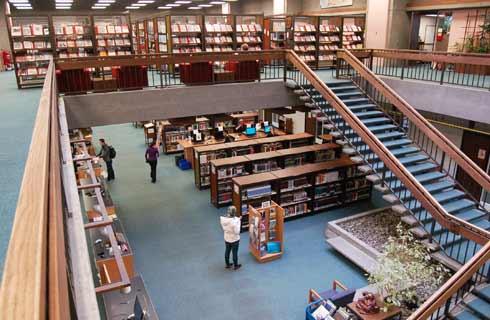
采矿工程应用科学(工程)学士学位
 不列颠哥伦比亚大学
不列颠哥伦比亚大学学历文凭
Bachelor Degree
开学日期
课程费用总额










 美国
美国
